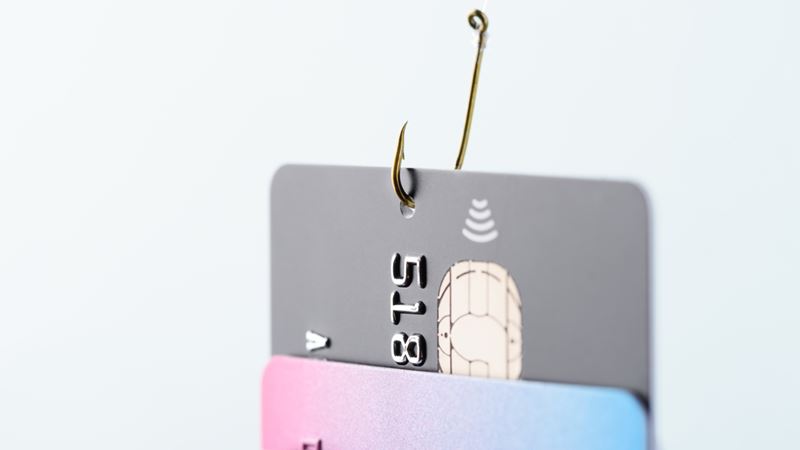

Fraud-prevention agencies are warning of scammers using bogus life-insurance claims and offers to gain access to your details or steal your cash.
They may say they can lower your premiums, or that your policy needs to be reviewed for an official-sounding reason.
In February 2024, Action Fraud issued an alert saying it had received 800 reports of scam emails purporting to be from companies selling life insurance, but instead contained malicious links designed to steal your identity or infect your device with a virus.
Bereavements are, sadly, also a time when scammers are likely to attack, tricking people into paying a fee or handing over their personal details by saying they may be due a large payout from the recently-deceased's life insurance.
According to charity Age UK, four in 10 people over 50 have been scammed in some way, with around one in 10 falling prey to impersonation fraud or identity theft.
It studied figures from the Crime Survey for England and Wales 2021-2022 and believes that at least four people aged 50 plus in England and Wales are scammed in some way every minute.
Caroline Abrahams, Charity Director at Age UK, says: “Many scammers are highly sophisticated criminals and it’s easy for anyone to be tricked by them. However, older people sometimes face a unique set of risk factors.
“Often perceived as more trusting and less technologically savvy, fraudsters will target older people with specific scams, resulting in financial losses and profound emotional and psychological impacts.”
While you may think you could easily spot fraudsters targeting you through a life insurance scam, they’re skilled at getting to people in ways that aren’t always obvious.
Very often it’s just a sense of something feeling ‘not quite right’ that alerts you to a serious issue – and listening to that feeling can be the thing that stops you giving away many thousands of pounds to criminals.
One of the more common life insurance scams is being told you’re a beneficiary of the policy of someone recently deceased, and you either need to hand over your details for verification or pay an ‘outstanding amount’ before you can receive a payout.
Councils around the country are warning of this type of scam, which sadly preys on the emotional distress of the recently bereaved. They can gain details of people who have recently passed away through obituaries to develop potential targets.
This scam can come in the form of a phone call, allowing the fraudsters to apply pressure and force the recipient to act quickly, making it easier for the con to work. You should never give your card details to a call you weren’t expecting.
If the same ‘information’ is sent in an email, asking you to click a link to access the payout, this could be a ‘phishing’ scam, designed to steal your identity or infect your computer with malware.
Paula Llewellyn, Chief Marketing Officer and Direct MD at Legal & General Retail, says: “A suspicious scam email will sometimes – though not always – have spelling mistakes and may ask you to click on a link and enter your bank details, which should definitely be avoided.”
Another potential life insurance scam can be around issues with your current policy – whether there’s a problem with payments, the details of the cover or just that you’re paying too much, and a better deal can be found.
With most of us wanting to make sure we avoid any lapses in cover, or missing out on a good deal, it’s easy to just listen to what’s being said before unwittingly handing over our details.
Llewellyn says: “An offer that looks too good to be true, usually is. Trust your sense that something is not quite right.”
So, if you’re not expecting to receive a life insurance payout from someone else’s policy, or you get offered a premium that seems much cheaper than the competition, take a moment to consider your options and do further research to verify if what you’re being offered is real.

We live in a world where many of us are constantly hounded by marketing calls or emails, and it can be tempting to keep the conversation going just so you can tell the other person to stop contacting you.
However, this can still raise the chances of being scammed, so remember a few quick rules to reduce your risks when receiving unexpected communication:
Llewellyn says: “While it may be tempting to confront a scammer verbally, or ‘play along’ to outsmart them, it’s best to ignore anyone who commits a life insurance scam.
“By engaging, you might unwittingly disclose personal information.”
If you are scammed, or spot something suspicious, report it to Action Fraud. You can also report it to the confidential Insurance Cheatline, run by The Insurance Fraud Bureau.
Many people feel too angry or embarrassed to report fraud, but it’s important you do so. By highlighting a scam you may get both emotional support and help recovering your losses. Your actions could also help police catch a fraudster, meaning you’re protecting others too.
If the scam relates to your own policy, it’s also worth contacting your insurer, in case your details have been compromised. You should also ensure your computer is protected by using a good anti-virus program.
Make sure you‘re aware of what Action Fraud calls ‘fraud recovery fraud’ too. This is when criminals contact victims pretending to be from their bank, solicitors or a specialist recovery firm.
They will claim to be able to help the victim get their money back, or some amount of compensation, for a fee.
This may be the same criminal targeting the victim again, or someone else who has got your details from the dark web.
A report from 2021 showed that over £373 million was lost to those who have already been victim of scam, according to the City of London Police,
“There is something deeply cynical and cruel about criminals who target those who have already been a victim of fraud,” says Graeme Biggar, Director General of the National Economic Crime Centre.
“If you are offered the opportunity to get your money back by a person or organisation that knows the details of your initial fraud experience, it is likely that they have this information because they are the same criminals that scammed you in the first place or have links to them.”

.jpg?la=en&h=354&w=616&hash=EF7D69971E6E84DBFACB50DA190CC405)

After an inquiry into will-writing services, we explain how you can avoid getting ripped off.


Don’t let a generous gift turn into a tax trap for your family – here’s what you need to know.

From their first savings account to their first home, find out how your gifts can make the biggest impact for your grandchildren